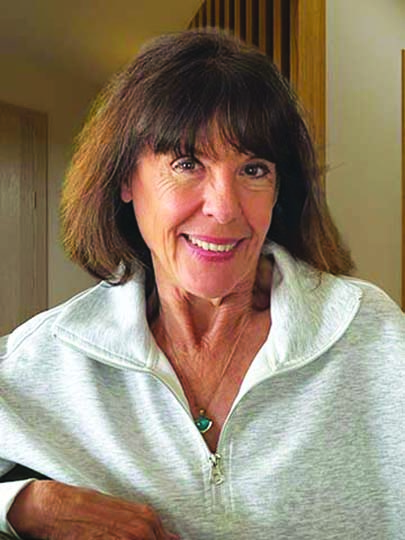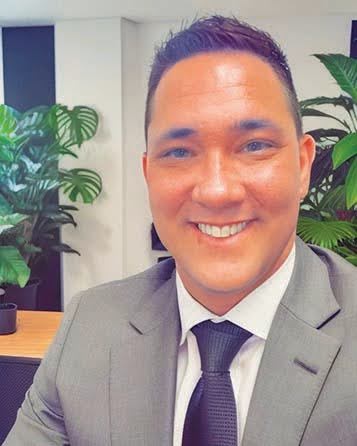By Ben Gallaway LISAC, CSAT
Shame is an emotional experience that was, until the past few decades, so neglected it might have been considered psychology’s stepchild. Research identifies shame as an important element in aggression, addictions, obsessions, narcissism, depression, and numerous other psychiatric syndromes. In this article I will clarify 12 step recovery, addiction treatment and ongoing therapy as they relate to shame reduction work.
The Pioneers
Brené Brown, Ph.D., LMSW has spent the past ten years studying vulnerability, courage, worthiness and shame. She has written several New York Times bestsellers, Daring Greatly, The Gifts of Imperfection, and I Thought It Was Just Me. As a researcher, she discusses the ‘less than feelings’ so many people experience. This feeling — is shame and covered in all of her books.
Dr. Brown is quite clear that many human beings identify with shame, and not only those who suffer from addictions, trauma and co-dependency.
“Shame is a profoundly debilitating emotion. It drives our fears of not being good enough. We can learn to feel shame about anything that is real about us — our shape, our accent, our financial situation, our wrinkles, our size, our illness, or how we spend our day.” — Brené Brown
Many people identify with this dark horse…shame.
In 1988, John Bradshaw wrote Healing the Shame That Binds You, a book read by millions of people across the world. In it, he discusses concepts surrounding toxic shame and how it becomes the fuel for addictions and co-dependent behaviors. At the time of the book’s release many people started to understand co-dependency as a shame based illness.
“To be shame-bound means whenever you feel any feeling, need or drive, you immediately feel ashamed. The dynamic core of your human life is grounded in your feelings, needs and drives. When these are bound by shame, you are shamed to the core.”
— John Bradshaw, Healing the Shame that Binds You
Many people in recovery started to connect the breakdown in their relationship with self and others, as being rooted in toxic shame. Professionals in the treatment field began to view core trauma and family of origin shame as co-occurring issues to substance abuse and process addictions.
Bradshaw and others were helpful in the development of understanding how successful addiction treatment is about treating unresolved trauma and toxic shame, alongside interacting addictions.
Today, in residential treatment centers it is common to treat trauma, shame and addiction side by side. John Bradshaw’s very important recovery work continues to improve lives and has greatly influenced the field of recovery. Dr. Brown’s work is helping many individuals who carry the weight of a distorted self-concept. Both Bradshaw and Brown are true pioneers.
Childhood Shame and Adult Defending
In my childhood I experienced violence, which is overt abuse. The problem for many individuals is, if the abuse they experienced was covert or subtle, they can easily minimize it by comparing it to the extremes, such as physical violence. Subtle abuse can create just as much wounding.
Many of us were abandoned or neglected, and our shame is rooted in the unconscious belief we were less than deserving of our parents time, attention or affection. For the child who loses a parent to death or divorce, it is not what happened to them, but what didn’t happen for them. No matter what our circumstances, we grow up feeling lonely, worthless, and many of us form overly dependent or love addicted relationships.
Enmeshment is another childhood set up. When a child is used to fulfill something in a parent, or family system; like unmet needs, unlived dreams, goals and aspirations. Enmeshment between a parent and child will often result in over involvement in each other’s lives so that it makes it hard for the child to become developmentally independent and responsible for their choices. In functional homes the energy runs from the parents to children.
Adults who were the little parent, rescuer, or tried to be perfect for the family will incorporate shame and disown parts of their self. Generally they disown certain feelings and needs and avoid emotional intimacy and closeness in adult relationships.
When a shame bound individual begins therapy, it is not unusual to distort what happened to them in childhood. Healing will require deep work and the skill of a professional to help sort out the past. The distortions come from how children believed they had power; which caused reactions in others. Children internalize parent’s feelings and behaviors and make anything negative as well as things positive about themselves.
By internalizing shame and making everything about them as adults, the family of origin parents will be shielded from responsibility. Shame bound adults tend to blame themselves or others, but family of origin work is not about blame, it is about assigning responsibility. If we are going to be accountable for our mistakes, why not hold others accountable for theirs? When we can clarify our history, our shame is reduced.
Building strength in recovery is about gaining information that starts to connect with one’s ability to self-parent. The main issues surrounding self-parenting are affirming the self, taking care of our needs, and limiting our indulgences.
Shame and Self Esteem
Our self-esteem is related to our internal value as human beings. Too much shame distorts this value causing us to feel less than, worthless, unlovable — even defective. We fear exposure, hiding behind an image, becoming extremely aloof, or acting shameless. Addictions, co-dependency and toxic shame are joined at the hip.
The power of toxic shame can infiltrate our identity and become rooted in our thoughts and belief system. A shame bound individual will deny parts of the authentic self and start to develop an adapted self — with a complex defense system and often, multiple addictions.
In this process we will either view ourselves as less than, or develop a ‘one up’ control driven set of behaviors to compensate. Some people become ‘one down to self’, and ‘one up to the world’. This shame fueled process may have started in our childhoods where we began to carry the shame of others who were not being responsible for their feelings and actions.
The addictive or co-dependent process will enhance the development of a shame based personality. One of the most difficult things for any human being to experience is the loss of the true self. We all want to love and be loved. It’s difficult to have any relationship if we are struggling with our since of self.
If we don’t learn to value ourselves from the inside (self-esteem) then we will do the opposite — value ourselves from the outside (outer-esteeming), becoming hostages to the circumstances outside of ourselves.
Our thoughts and feelings about who we are will become dependent on a relationship with someone, or something outside of ourselves. This outer-esteeming causes our value to rise and fall based on what’s going on in our environment. True self-esteem doesn’t rise or fall, it is the belief we are precious and equal to others.
Shame and Addiction
The following is an illustration of the development of shame through an addictive family system.
Tim is an active alcoholic, married, with a five year old daughter, Amy. She will grow up to be an adult child of an alcoholic (ACA) and his wife will become more co-dependent as the family disease progresses.
One afternoon after running errands, he stops for a drink on the way home before Amy’s birthday party. Unintentionally he stays out well past the time intended. When he does arrives home, he’s drunk. The party is ending as he bursts in the door, and his behavior embarrasses Amy, her friends, his wife and family members. Later, Tim and his wife have a heated, merry-go-round argument.
As per the script, the next morning Tim wakes with one hell of a hangover. He doesn’t remember much and he’s filled with remorse, guilt and shame. And…. once again he promises to never let this happen again. At that moment he really believes it.
Yet, the result of his behavior will cause Amy and her mom to internalize and carry shame about the previous night and all the others . In time, both will of them will develop stronger defenses because of their wounds.
In Tim’s case, because of how the addicted brain is hijacked to the development of chemical tolerance, he will repeat the behavior, and circumstances will get worse for everyone. His attempts to control his behavior will become part of the loss of control experienced by most addicts. In not understanding his true powerlessness over alcohol; self-judgments and his shame core will increase.
His wife may attempt to fix and control her internal feelings of shame by shifting the focus on Tim’s problem, and the disease of addiction will rule this family. You can imagine all the different ways a family system will adapt to the shame and addiction. By introducing recovery to the family, the scenario for this family can change and the greater the chances they can begin to heal.
Healthy Shame and Guilt
The feeling of healthy shame signals us to limit ourselves. It’s our reminder to stay humble. If we are shameless, it’s easy to act offensively. A shameless individual is one up, non-contained and usually unaware of their offensive impact. The tendency is to ‘play God’. Healthy guilt lets us know when we break our own rules. Guilt is about what I do or don’t do and shame is about who I am.
With a healthy since of self, we can recognize our mistakes and learn from them. In a shame bound individual the belief is I am a mistake. A healthy response to guilt is, I did something wrong that I need to correct.
Recovery and Relapse
A high percentage of individuals in 12 Step programs grew up in addictive family systems or levels of dysfunction. It is not uncommon for them in recovery to experience toxic shame and pain from childhood wounds. This will usually show up in intimate relationships, where we ‘act out’ our unfinished business. Adding shame reduction, trauma work or ongoing therapy to the mix of sobriety is beneficial on the recovery journey.
Relapse happens long before we act out our addiction. When we carry shame we are much more susceptible to relapse. Some people isolate, keep secrets, act out compulsively in process addictions like sex, gambling, spending and overeating attempting to gain relief. This creates more shame and pain which elevates the need to medicate feelings which accelerates the cycle of relapse.
There are times when individuals in recovery need outside help from a therapist to wade through the self-doubt maze that was founded in a difficult family history. The disease of addiction is chronic. It does not go away.
There are those who relapse right after treatment because they believe they lost their safe place to open up. When a person is shame bound it kicks up a lot of anxiety and many fear reaching out for help in 12 Step meetings. With support and encouragement, and the realization that most people who attend 12 step meetings are there for the same reason— to stay on the path and form healthy relationships.
Professionals can help build support for clients within the continuum of care, especially after treatment. The field is filled with resources and it is our responsibility to do our due diligence. Two of the largest 12 step fellowships are Alcoholics Anonymous and Narcotics Anonymous. Finding a home group to attend and allowing people get to know us is essential.
My Journey
Throughout most of my life, I felt less than, unlovable and didn’t fit in. I tried to be the best at everything, and in the progression of my addiction, I began to sabotage myself. I formed a pattern of attempting to be the best, or the best at being the worst.
I used success to buy off how small I felt and would fulfill the belief by sabotaging any success I did had. I tried to kill my pain with painkillers. It didn’t work and I entered treatment for close to a year in the late 80’s. The carried feelings from growing up in an abusive home started rearing its ugly head soon after. But I found a therapist who worked with me on my shame and it was recommended that I join a men’s therapy group. Through the process I learned I had to become vulnerable to those closest to me. My wife did deep relational work with me, and together we made a commitment to heal.
When we spend our lives waiting until we’re perfect or bulletproof before we walk into the arena, we ultimately sacrifice relationships and opportunities that may not be recoverable, we squander our precious time, and we turn our backs on our gifts, those unique contributions that only we can make.Let’s dare to show up and let ourselves be seen.
Ben Gallaway has worked in the field of Addiction and Trauma Treatment since 1989. Ben is owner and Director of Enchantment Workshops where he Customizes Educational Intensives and Workshops for individuals, couples, groups and families who suffer from the effects of Trauma and Addiction. Ben is certified as a Sex Addiction Therapist through IITAP and is an Alcohol and Drug Abuse Counselor through CADAC and ICADC.
Contact Ben at 602-228-8737 or visit www.enchantmentworkshops.com





web.gif)





























